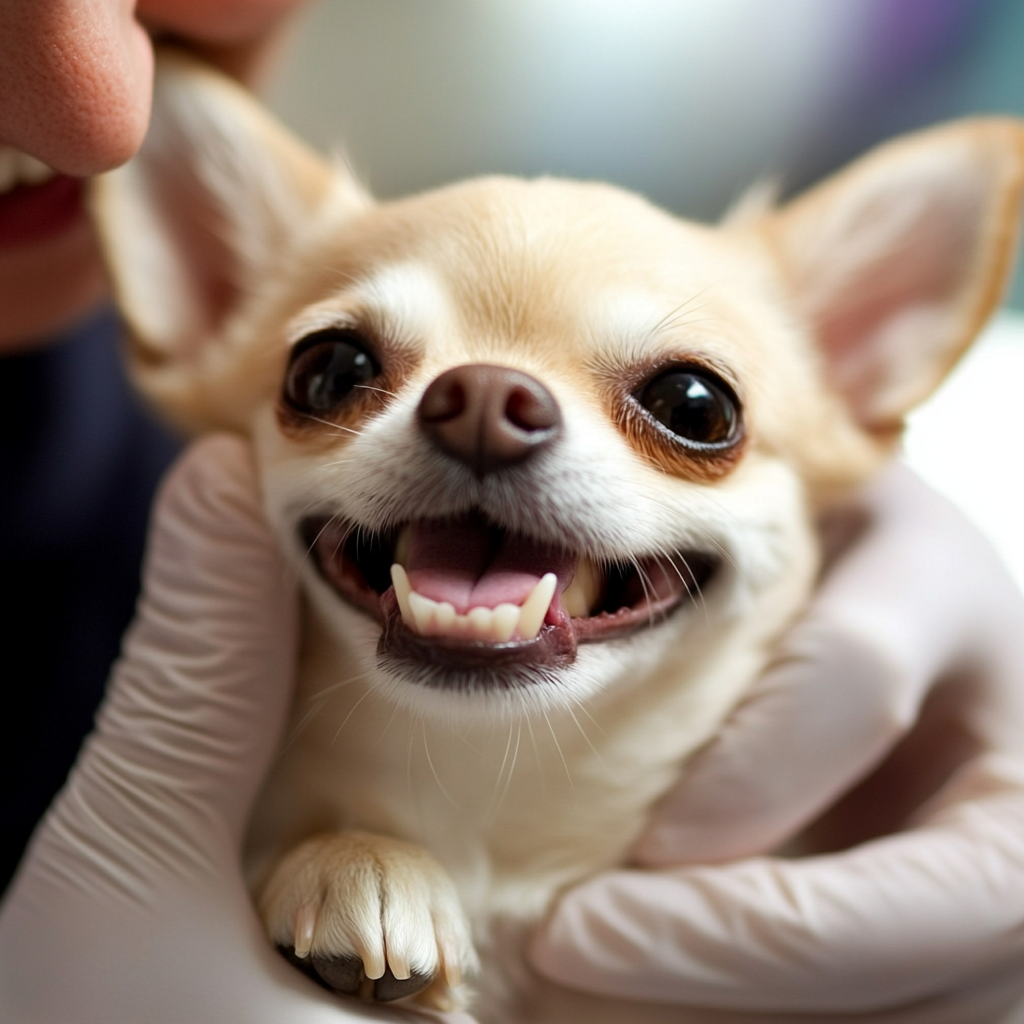From The Vet: 3 Things Every Chihuahua Owner Should Watch For

Chihuahuas are small, energetic dogs with big personalities. As one of the most popular dog breeds, they bring joy to homes worldwide. But despite their fun-loving and affectionate nature, Chihuahuas can face specific health issues that every owner should be aware of. Owning a Chihuahua comes with great responsibility, especially when it comes to their health. The unique structure of this breed and their small size make them prone to certain health problems that could impact their quality of life.
Understanding these potential issues is crucial for every Chihuahua owner. By being proactive and informed, you can help your tiny companion live a happy, long, and healthy life. This article will focus on three key health concerns every Chihuahua owner should be aware of, including tips on prevention and care. From dental issues to joint problems, we will dive into what to look out for and how you can manage these conditions to ensure your furry friend thrives.
Why Chihuahuas Have Specific Health Issues
Before we dive into the three most common health problems, it's important to understand why Chihuahuas, like many purebred dogs, are more susceptible to specific medical conditions. Breeds with distinctive physical traits—like the Chihuahua's compact body, large head, and short snout—often have health issues associated with these features.

Chihuahuas are a toy breed, meaning they are small, but they were bred down from larger dogs. This breeding process can sometimes lead to genetic health issues being more common within the breed. While these conditions can affect your Chihuahua’s life, understanding them allows you to be prepared and take action when necessary.
Now, let’s explore the top three health concerns for Chihuahuas, starting with a serious but somewhat preventable condition—hydrocephalus.
1. Hydrocephalus: The Trouble with Big Heads
What Is Hydrocephalus?
One of the most common health problems seen in Chihuahuas is hydrocephalus, a condition where cerebrospinal fluid accumulates in the brain. This buildup puts pressure on the brain, leading to neurological issues. The name "hydrocephalus" comes from the Greek words "hydro," meaning water, and "cephalus," meaning head—literally translating to "water on the brain."

Chihuahuas are known for their apple-shaped heads, and while this gives them a cute appearance, it can be a sign of an underlying problem. Hydrocephalus is often seen in puppies with large, dome-shaped heads, and it is a condition that can develop either at birth or early in life. This makes it one of the most common concerns for Chihuahua owners.
Signs and Symptoms
It’s important to recognize the signs of hydrocephalus early because the condition can progress rapidly. Here are some common symptoms to watch out for:
- Enlarged Head: Chihuahuas with hydrocephalus tend to have a noticeably larger head compared to their body.
- Behavioral Changes: Affected dogs may exhibit abnormal behavior, such as confusion, walking in circles, or restlessness.
- Seizures: One of the most concerning symptoms is seizures, which can be life-threatening if not treated.
- Uncoordinated Movements: You might notice your Chihuahua struggling with balance, walking awkwardly, or having trouble standing.
- Head Pressing: This is a telltale sign of discomfort, where the dog presses its head against walls or objects to relieve pressure.
Causes of Hydrocephalus
Hydrocephalus is typically caused by a genetic predisposition, making it more common in Chihuahuas than in many other breeds. It can also be caused by brain infections, trauma, or developmental abnormalities. Because it’s a genetic disorder, there is little that can be done to prevent hydrocephalus, but early detection and treatment are key.
Treatment and Care
If you suspect your Chihuahua has hydrocephalus, it’s critical to consult a veterinarian as soon as possible. Treatment options vary depending on the severity of the condition. In mild cases, medication may be prescribed to reduce the buildup of cerebrospinal fluid and relieve pressure on the brain. More severe cases may require surgical intervention, where a shunt is placed to drain the excess fluid.
Managing hydrocephalus in Chihuahuas can be challenging, but with proper veterinary care, many dogs can live comfortable lives. The earlier the condition is diagnosed, the better the prognosis.
Prevention Tips
While hydrocephalus itself can’t always be prevented, you can take steps to reduce your dog’s overall health risks:
- Regular Vet Check-ups: Ensure your Chihuahua has frequent check-ups to monitor for early signs of neurological problems.
- Breeder Research: If you’re getting a Chihuahua puppy, research breeders to ensure they prioritize health testing to minimize genetic issues.
By staying vigilant and catching hydrocephalus early, you can significantly improve your Chihuahua's quality of life.
2. Periodontal Disease: Protecting Those Tiny Teeth
What Is Periodontal Disease?
Dental problems are one of the most overlooked health concerns in Chihuahuas, yet they are incredibly common. Periodontal disease affects the gums and teeth and can lead to painful infections, tooth loss, and even systemic health problems if left untreated. Periodontal disease starts when bacteria build up on the teeth and gums, forming plaque. Over time, this plaque hardens into tartar, which irritates the gums and causes them to pull away from the teeth.

Chihuahuas, like many small dog breeds, are particularly prone to dental issues due to their small mouths. Their teeth are often overcrowded, making it difficult to maintain good oral hygiene. Without proper care, periodontal disease can progress, leading to severe pain and complications.
Signs and Symptoms
Recognizing the early signs of periodontal disease is essential for preventing long-term damage. Here’s what to watch for:
- Bad Breath: Persistent bad breath is often the first sign of dental disease in dogs.
- Red or Swollen Gums: Gingivitis, the early stage of periodontal disease, causes inflamed and bleeding gums.
- Difficulty Eating: Your dog may show reluctance to eat, chew on one side of the mouth, or drop food while eating.
- Loose or Missing Teeth: As the disease progresses, teeth may become loose and eventually fall out.
- Pawing at the Mouth: Dogs experiencing dental pain may paw at their mouths or show signs of discomfort when touched.
Why Chihuahuas Are at Risk
Chihuahuas are more prone to periodontal disease because of their small mouths. Their teeth are crowded, making it easier for plaque to accumulate and harder to clean effectively. Additionally, many Chihuahua owners don’t realize the importance of dental care for their pets, which leads to neglect and the progression of dental issues.
Treatment and Care
If your Chihuahua shows signs of periodontal disease, it’s crucial to seek veterinary care immediately. Treatment will depend on the severity of the condition:
- Dental Cleaning: Professional cleanings under anesthesia are essential for removing built-up plaque and tartar.
- Tooth Extractions: In more advanced cases, your vet may need to extract damaged or loose teeth to prevent further infection.
- At-Home Care: Brushing your dog’s teeth regularly with a dog-specific toothpaste is the best way to prevent plaque buildup. Dental chews, water additives, and rinses can also help maintain oral health.
Preventive dental care is one of the most important aspects of Chihuahua ownership. By staying on top of your dog’s dental hygiene, you can prevent painful conditions and ensure a healthy, happy life.
Prevention Tips
Good dental care starts at home:
- Daily Brushing: Use a toothbrush designed for small dogs and toothpaste specifically made for pets.
- Dental Chews: Offer dental chews that help clean the teeth as your dog chews.
- Regular Vet Visits: Schedule regular dental check-ups with your vet to catch any potential issues early.
Proper dental care is key to preventing periodontal disease, ensuring your Chihuahua remains pain-free and healthy.
3. Patellar Luxation: Kneecap Problems in Small Dogs
What Is Patellar Luxation?
Patellar luxation is a common joint issue in small dogs, and Chihuahuas are no exception. The patella, or kneecap, normally sits in a groove on the femur, allowing the knee to move smoothly. However, in Chihuahuas, the groove is often too shallow, allowing the kneecap to slip out of place. This condition, known as patellar luxation, can cause pain, lameness, and eventually arthritis if not addressed.

Patellar luxation varies in severity, from occasional dislocation to chronic instability. While some dogs may only experience minor discomfort, others may require surgery to correct the problem.
Signs and Symptoms
It’s important to recognize the signs of patellar luxation early to prevent further damage:
- Skipping or Limping: Dogs with patellar luxation may skip or hop on three legs while running.
- Sudden Lifting of a Leg: You may notice your Chihuahua suddenly lifting one of its back legs, as if to relieve pain.
- Difficulty Jumping: Chihuahuas with patellar luxation often struggle with jumping onto furniture or climbing stairs.
- Kicking the Leg Out: Some dogs will kick their leg out to pop the kneecap back into place.
Why Chihuahuas Are at Risk
Due to their small size and delicate bone structure, Chihuahuas are more prone to joint problems like patellar luxation. The condition is typically genetic, meaning that it’s passed down through generations. Toy breeds like Chihuahuas are particularly susceptible because of their shallow knee grooves, which don’t provide enough stability for the kneecap.
Treatment and Care
The treatment for patellar luxation depends on the severity of the condition. In mild cases, lifestyle changes and medications may be enough to manage the problem. However, more severe cases may require surgery to realign the kneecap and deepen the groove in the femur.
- Weight Management: Keeping your Chihuahua at a healthy weight is essential for reducing pressure on their joints.
- Medication: Your vet may prescribe anti-inflammatory medications to reduce pain and swelling.
- Surgery: In severe cases, surgery may be necessary to prevent long-term joint damage and arthritis.
Patellar luxation is a serious condition that can impact your Chihuahua’s mobility and quality of life. Early intervention is key to managing the condition and preventing further complications.
Prevention Tips
While patellar luxation is often genetic, there are steps you can take to reduce the risk:
- Maintain a Healthy Weight: Obesity puts additional strain on your dog’s joints, increasing the risk of patellar luxation.
- Avoid Overexertion: While exercise is important, avoid activities that put too much strain on your Chihuahua’s legs.
- Regular Vet Check-ups: Your vet can monitor your dog’s knees during routine check-ups and provide early intervention if necessary.
By staying vigilant and keeping your Chihuahua at a healthy weight, you can help prevent or manage patellar luxation, ensuring your dog stays active and pain-free.
Conclusion: Keeping Your Chihuahua Happy and Healthy
Chihuahuas may be small, but they come with big responsibilities. As a Chihuahua owner, it’s important to be aware of the health issues that can affect your furry friend. By understanding conditions like hydrocephalus, periodontal disease, and patellar luxation, you can take proactive steps to ensure your Chihuahua stays happy, healthy, and full of life.

Regular vet visits, proper care, and early intervention are the keys to managing these common health problems. While these conditions may seem overwhelming, being informed and prepared can make a world of difference in your Chihuahua’s quality of life.
Whether it’s keeping their teeth clean, watching their weight, or noticing changes in their behavior, staying on top of your Chihuahua’s health is the best way to ensure they live a long and joyful life by your side. Remember, your veterinarian is your best resource, so don’t hesitate to reach out with any concerns or questions about your dog’s health.
With proper care, your Chihuahua will be a loyal, loving companion for years to come.






